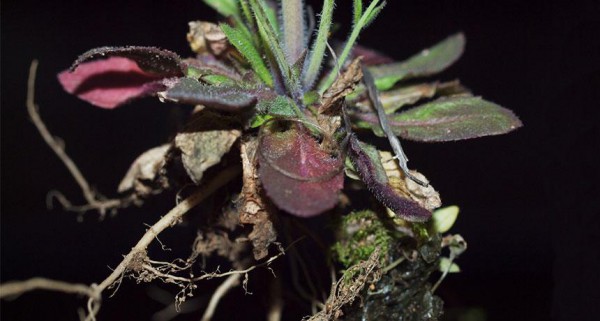Defense hormones guide plant roots’ mix of microbes
Plants help tend their own gardens. Salicylic acid, a plant hormone used to fight bacterial infections in leaves, also helps plants select which bacteria colonize their roots, researchers report online July 16 inScience.
The finding provides an unexpected piece to an unsolved puzzle in plant biology: why some microbes flock to the roots of certain plants regardless of soil type.
Researchers thought there were two possibilities for how specific collections of microbes get together with roots, says Cara Haney, a microbiologist at Massachusetts General Hospital in Boston. “Either plants are just sticks in the mud that certain bacteria like to eat, or plants play a role in shaping that community,” she says. Haney, who was not involved in the new study, investigates interactions between plants and microbes.










